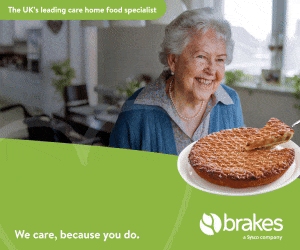OPINION: Vitamin D: Menus and Supplementation
Sophie Murray, governance and regulation manager of Harbour Healthcare, shares her opinion on the importance of incorporating vitamin D into a care home menu to provide supplementation to residents

A BIT OF BACKGROUND
The government and the Care Quality Commission (CQC) both advise that care home providers are expected to support people’s full nutritional needs, which includes supplementation with vitamin D, throughout the year.
Since 2016, Public Health England has issued guidance that population groups at increased risk of a vitamin D deficiency, such as people who are confined indoors, especially those in care homes, should take a daily 10 micrograms (mcg)/400 international units (IU) of vitamin D supplement throughout the year. Evidence suggests 100 mcg/4,000 IU of vitamin D a day could be harmful.
Care homes are required to purchase and provide suitable vitamin D supplements, which can include tablets, liquid or oral sprays, for residents.
In early 2021, in response to the global pandemic, the government made the decision to provide a free four-month supply of vitamin D to all care home residents. As a food supplement, vitamin D can be purchased over the counter like any other vitamin and carries a plethora of benefits to support functioning of the body. As it still carries a risk due to drug interactions and excessive intake, it requires a level of screening and consent from residents or mental capacity assessments to establish best interest of the resident.
As a result of the above, requests to GP practices to prescribe 10mcg or 400 IU vitamin D supplements for care home residents may be declined and care homes directed to purchase products themselves.
WHAT DOES VITAMIN D DO?
Vitamin D helps regulate the amount of calcium and phosphate in the body. These nutrients are needed for healthy bones, teeth and muscles. Too little vitamin D can lead to bone pain and muscle weakness in adults. This may also increase the risk of falls in older people. The potential impact of falls is well known with risk of injury and longer-term consequence. Women are also more at risk of more fragile bones following menopause and care home populations see greater numbers of women than men.
THE ISSUES
Before administering vitamin D, the care home needs to establish a safe level of screening and consent as well as having a safe administration and storage process in place. For some health professionals, this can cause unease as they feel they are prescribing. Vitamins do not fall into the usual procedures for home remedies, so they require some understanding of how to write a procedure in this topic area.
THE CONSIDERATIONS
In order to prescribe, care homes need to understand the guidance and put in place screening and consent. Care homes should also be aware of current medication that may already include vitamin D or be aggravated by taking vitamin D, which may take different names including colecalciferol. In context, the daily dose recommended is a dietary level for safe functioning, not a therapeutic dose, which is often higher and needs to be administered under the guidance of an appropriate health professional such as a qualified nutritional therapist or a GP.
CAN FOODS HELP TO PROVIDE VITAMIN D?
In a word: yes. Foods can help but it is unlikely to be enough. The body creates vitamin D from direct sunlight on the skin when outdoors. Between October and early March, we do not make enough vitamin D from sunlight.
Vitamin D is also found in a small number of foods such as mushrooms, eggs and milk powder. However, the quantities needed are difficult to obtain from food alone. Two eggs for example contain approximately 87IU, when 400IU is recommended daily. Milk powder may contain 120IU in a 200ml serving, which, in combination with two eggs, may offer half the daily amount. Again, this may not fully provide for daily needs. Some foods such as many cereal brands also fortify with vitamin D which can help a little.
ARE ALL CARE HOMES PROVIDING VITAMIN D?
No, and more help is needed to create awareness and guidance to screen and administer safely. Food supplements are not an area that care homes are typically trained in. There is more to do to support care homes to provide this essential vitamin.






